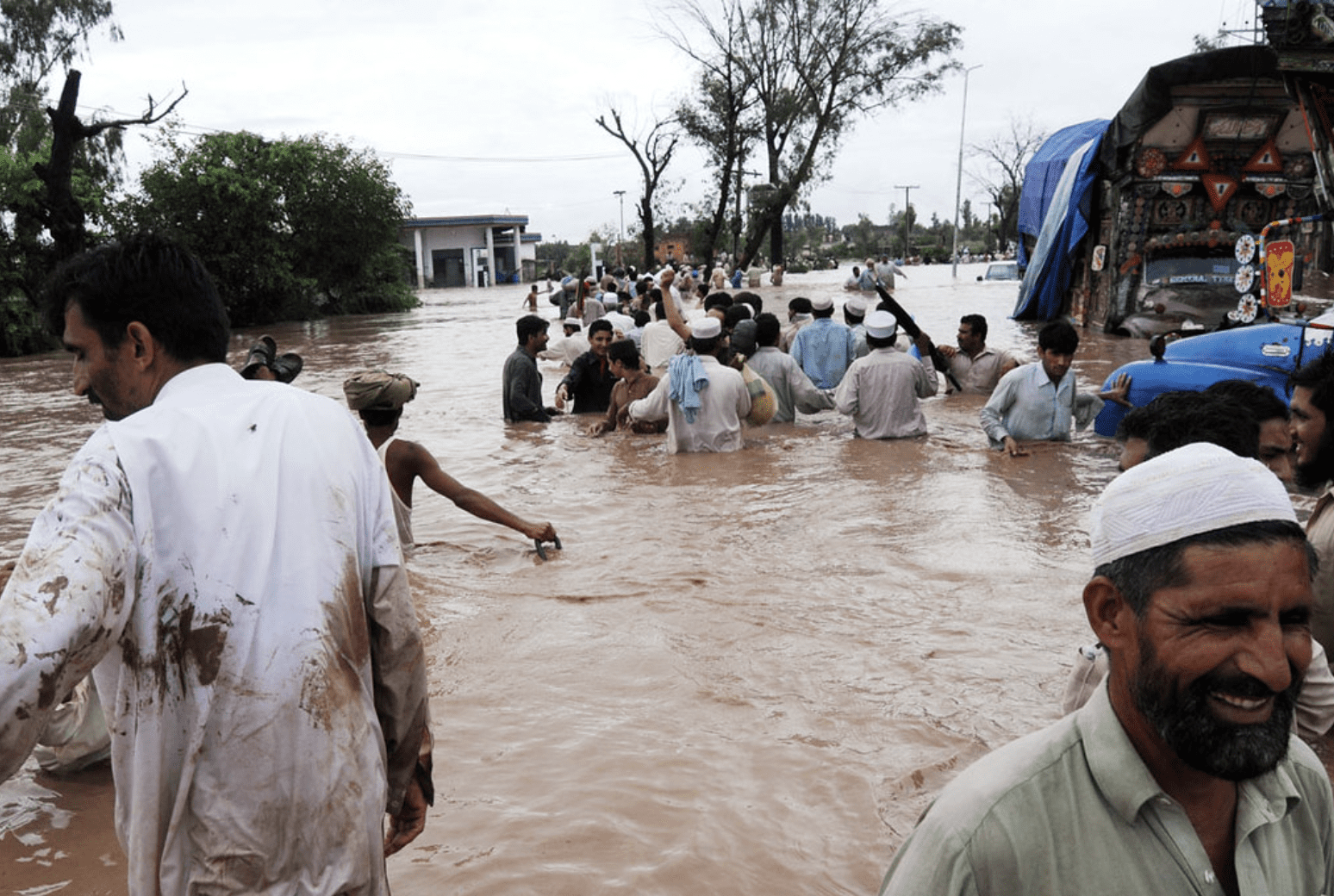
Pakistan, a country already suffering from the energy crisis and political turmoil (as The European Conservative reported previously), has been hit by the most severe floods in over a decade, leading to the death of more than 1,130 people and counting. UN Secretary General Antonio Guterres referred to the flood as “a monsoon on steroids,” while Pakistan’s Prime Minister Shahbaz Sharif called the flood “the worst in the country’s history” in his first address to the international media since he took office in April.
“We are suffering from it but it is not our fault at all,” said Sharif during the press conference, as quoted by The Guardian. His climate change minister, Sherry Rehman, referred to the flooding as a “climate catastrophe” before moving on to explain that Pakistan was responsible for less than 1% of global greenhouse gas emissions. “There are countries that have got to become rich on the back of fossil fuels,” Rehman said. “Let’s be honest about this: Now the time has to come to make a change and we all have a role to play but they have a greater role in this climate catastrophe.” This notion was picked up by Ahsan Iqbal, the Minister of Planning and Development, who said at the same press conference that “people are enjoying their lives in the West but someone here is paying the price.”
More than 33 million people have been impacted by the current monsoon, 3,500 km of roads have been washed away, and estimates are that more than one million animals have died from it. According to Prime Minister Sharif, the flood has caused up to $10 billion in damage. He added that Pakistan would be facing a food shortage due to the crop damage caused by the floods. The prime minister said that the price of tomatoes and onions had “skyrocketed” since the flood, but failed to mention that the economic situation of Pakistan was already highly volatile due to the energy crisis and fertilizer shortages in the weeks and months prior to the catastrophe.
UN Secretary General Guterres has called upon the global community to support Pakistan in its current situation, launching a $160 million appeal for immediate help for the South Asian nation. Also, PM Sharif called for help, stressing that “every penny of aid will reach the needy,” something worth pointing out, given not only Pakistan’s but also the Sharif family’s ongoing struggle with the temptations of corruption.
Guterres had referred to “more and more extreme weather events around the world” as a warning sign that “global emissions of greenhouse gasses are still rising, putting all of us—everywhere—in growing danger.”
However, a 2021 report by the World Meteorological Organization did point to the fact that while the number of disasters increased by a factor of five over the past 50 years, the reasons for that may not only be found in climate change and more extreme weather, but also in improved reporting. In conjunction, thanks to improved early warning systems and better disaster management, the number of deaths decreased almost three-fold over the same period.
Despite Pakistan experiencing political turmoil and regular blackouts due to the energy crisis, neither of which are conducive to efficient disaster management, the death toll lies still below the flood of 2010, in which almost 2000 people died during the monsoon. While Prime Minister Sharif called the current flood “the toughest movement in the history of Pakistan” and claimed that he has “not seen such devastation in my life,” comparisons with the flood of 2010, as well as other historical examples of floods in Pakistan in the 1970s, show not only a comparable amount of devastation but deliver insight into the complex interplay of factors causing such catastrophes.
NASA attributed the 2010 flood to unusually intense monsoon rains caused by La Niña, and extensive research at Utah State University came to the conclusion that the exceptional rainfall, as well as other weather anomalies at that time, may have been caused by the “freezing” of the jet stream. It may only be hoped that similar extensive research will help define the causes of the current catastrophe a bit more precisely than blaming Western usage of fossil fuels, so that effective countermeasures may help minimize the impact of natural disasters and save the lives of many in the future.
